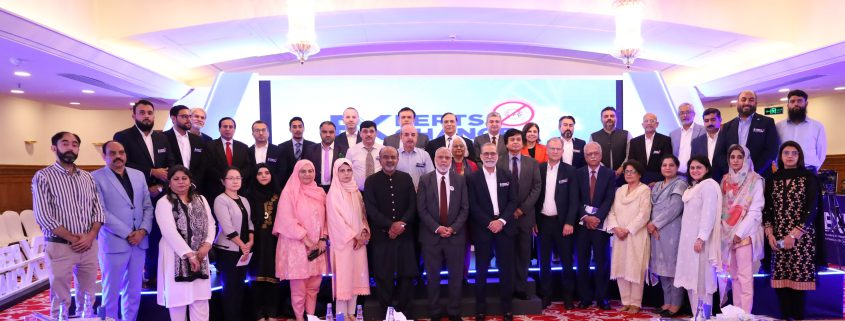Islamabad Healthcare Regulatory Authority (IHRA) chief hailed the PM’s Hepatitis C elimination program
Islamabad Healthcare Regulatory Authority (IHRA) chief Dr. Quaid Saeed hailed the Prime Minister’s Hepatitis C elimination programme as a milestone for Pakistan’s health landscape. He said that the programme’s success would yield enormous economic benefits for the country and save thousands of lives from liver cirrhosis and cancer.
The event was attended by other experts, including Dr. Thilo Brenner and Dr. Nico Michel as well as government officials and public health experts from both the public and private sectors.
Transplant surgeon and member of the Prime Minister’s Taskforce on Hepatitis Elimination, Prof. Saeed Akhtar, the chief guest at the discussion, urged Pakistan to learn from Egypt, which successfully eliminated Hepatitis C. He said that Pakistan also has the expertise and potential to eliminate the virus from its population.
“We have around 10 million people infected with Hepatitis C, but like Egypt, we have the will and expertise to eradicate this infectious disease. The government has already approved an ambitious PC-1 project worth Rs68.25 billion for Hepatitis C elimination, with the federal government contributing Rs34.78 billion and the remaining amount shared by the provinces,” Prof. Akhtar explained.
Under the plan, the federal government will finance the 100% screening of all eligible individuals aged 12 and above, provide testing for 30% of the population, and offer medication to 50% of those testing positive for Hepatitis C.
“We aim to screen 100% of our population in one go and treat those who test positive. It’s a monumental task, as we estimate that 4-5% of the population will need treatment, but it’s achievable,” he said, expressing hope that international donor agencies would support the program once they see the government’s commitment.
Prof. Akhtar also called on politicians to stay out of healthcare matters, warning that uneven healthcare across the provinces could hinder efforts to eliminate Hepatitis C. He recommended starting the programme in Gilgit-Baltistan, which has a population of just 1.78 million, to create a successful model for the rest of Pakistan.
Dr. Khaled Atef from Roche Egypt shared that Egypt had screened 62.5 million people for Hepatitis C following a presidential order. Once screened, those testing positive were treated with direct-acting antivirals (DAAs), which he described as a “game-changer” in the country’s elimination campaign. “All health institutions, both public and private, were involved in this national drive, and the military also supported the campaign. We used mass media to raise awareness, making testing and treatment a priority for everyone,” Dr. Atef said.
Abdul Qayyum, country manager for Roche Pakistan and Afghanistan, expressed concern that Hepatitis C, often referred to as a “silent killer,” claims thousands of lives in Pakistan each year by gradually destroying the liver. He said that Pakistan has one of the highest hepatitis C prevalence rates globally, leading to chronic liver disease, cirrhosis and liver cancer, with annual deaths estimated in the tens of thousands.
Prof. Saeed Hamid from Aga Khan University highlighted that between 100,000 and 350,000 new Hepatitis C infections occur annually in Pakistan, primarily due to poor infection control practices, overuse of injections (15-16 per person per year), and a lack of awareness among both the public and healthcare providers.



